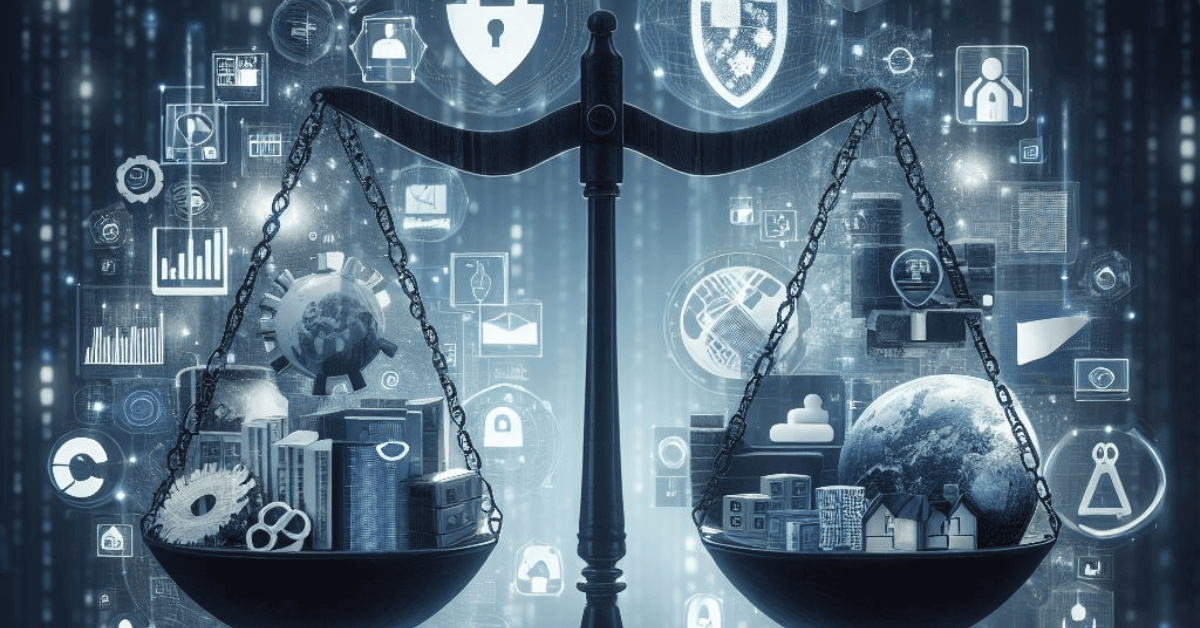Privacy data, also known as personal data, refers to any information that can be linked to an individual’s identity, enabling their identification. This can include various types of data, such as names, birth dates, addresses, social security numbers, financial information, and medical records. Safeguarding privacy data involves handling this information with respect for confidentiality and anonymity.
In today’s interconnected world, the security and privacy of personal information have become critical concerns. Attackers constantly target organizations to gain access to personal data, which can be exploited for fraudulent activities or identity theft. Laws such as HIPAA and GDPR have been established to protect individuals’ rights and impose penalties on organizations that fail to safeguard data privacy. But what exactly does data privacy entail, and why is it so important? I will explore the concept of privacy data and delve into the measures required to protect personal information effectively.
The Significance of Data Privacy

Ensuring data privacy is crucial due to several reasons:
- Protection against Financial and Reputation Damage: Even a single leak of personal data can have severe consequences for organizations, leading to financial losses and reputational damage. Public trust, investor confidence, and customer loyalty can be irreparably harmed when personal information is compromised.
- Legal Obligations: Laws like HIPAA (Health Insurance Portability and Accountability Act) and GDPR (General Data Protection Regulation) grant individuals the right to know how their personal information is being handled. Organizations failing to comply with these regulations may face substantial fines and legal repercussions.
Protecting Data Privacy: Best Practices
To safeguard data privacy effectively, organizations should follow these best practices:
- Understand and Identify Data: Gain a comprehensive understanding of the data you collect, store, and process. Identify the types of personal information you possess, where it is located, and who can access it.
- Implement Strong Security Measures: Establish robust security protocols to protect data from unauthorized access. This includes using encryption, multi-factor authentication, and secure storage systems.
- Develop Privacy Policies: Create clear and transparent privacy policies that inform individuals about how their data is collected, used, and shared. Ensure compliance with applicable laws and regulations.
- Educate Employees: Train your employees on data privacy best practices and make them aware of their responsibilities. Promote a culture of privacy and ensure everyone understands the importance of protecting personal information.
- Regularly Assess and Update Security Measures: Conduct regular security audits and assessments to identify vulnerabilities. Stay updated with emerging threats and implement necessary security updates promptly.
- Obtain Consent: Obtain explicit consent from individuals before collecting and processing their data. Clearly explain the purpose and scope of data usage to build trust with data subjects.
- Monitor Third-Party Relationships: When sharing data with third parties, ensure they have appropriate security measures in place. Regularly review and assess their privacy practices to maintain data privacy standards.
Digital Transformation and Data Privacy
With the advent of digital technologies, our lives have become increasingly digitized. It’s important to acknowledge the impact of digital transformation on privacy:
- Changing Nature of Privacy: In the digital realm, privacy takes on a new shape. Individuals’ identities are dematerialized into digital data, which requires enhanced protection from surveillance and misuse.
- Balancing Convenience and Privacy: While the digital world offers convenience and connectivity, it also presents privacy risks. It’s crucial to find the right balance between embracing digital advancements and safeguarding personal information.
The Data Privacy Act and Regulatory Compliance

To address the challenges of data privacy, many countries have introduced comprehensive legislation. For instance, the Philippines enacted the Data Privacy Act of 2012 (Republic Act 10173). This act aims to protect individuals’ privacy rights while fostering innovation and growth. The National Privacy Commission (NPC) serves as the country’s privacy watchdog, ensuring compliance with data protection standards and enforcing the Data Privacy Act.
Key Takeaways
- Privacy data refers to personal information linked to an individual’s identity.
- Protecting data privacy is crucial to prevent financial damage, reputation loss, and identity theft.
- Organizations should understand their data, implement strong security measures, develop transparent policies, educate employees, regularly assess security, obtain consent, and monitor third-party relationships.
- The digital transformation impacts privacy, necessitating a balance between convenience and data protection.
- Compliance with data privacy laws, such as the Data Privacy Act, is essential for regulatory adherence.
FAQs
Q1: What is privacy data?
A1: Privacy data, also known as personal data, refers to information that can be linked to an individual’s identity, such as names, birth dates, addresses, and financial or medical records.
Q2: Why is data privacy important?
A2: Data privacy is crucial as it protects individuals from financial harm, reputation damage, and identity theft. It also ensures compliance with laws and regulations designed to safeguard personal information.
Q3: How can organizations protect data privacy?
A3: Organizations can protect data privacy by understanding the data they possess, implementing strong security measures, developing transparent privacy policies, educating employees, regularly assessing security measures, obtaining consent, and monitoring third-party relationships.
Q4: What is the impact of digital transformation on data privacy?
A4: The digital transformation has reshaped privacy, dematerializing personal identities into digital data. It requires finding the right balance between leveraging digital advancements and protecting personal information.
Q5: Are there specific laws governing data privacy?
A5: Yes, many countries have introduced data privacy legislation. For example, the Philippines enacted the Data Privacy Act of 2012, which is overseen by the National Privacy Commission (NPC).
Conclusion
Data privacy is an essential aspect of information security in the digital age. Protecting personal information is not only a legal obligation but also crucial for maintaining public trust, safeguarding financial well-being, and preserving organizational reputation. By understanding the concept of privacy data and implementing robust security measures, organizations can mitigate risks and build a culture of privacy. Adhering to best practices, staying compliant with relevant laws, and prioritizing data protection contribute to a safer and more trustworthy digital landscape.
